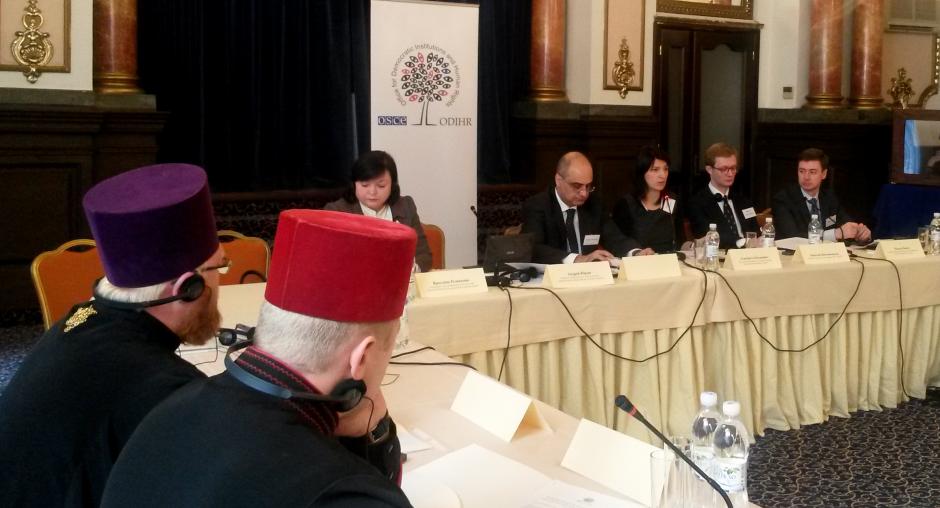OSCE/ODIHR organizes third meeting in Ukraine on the role of dialogue in the security of religious and belief communities

The role of dialogue in enhancing the security of religious and belief communities was the focus of a regional roundtable discussion, organized by the OSCE Office for Democratic Institutions and Human Rights (ODIHR) in Odessa, Ukraine on 3 November 2015.
More than 40 representatives of religious or belief communities, civil society organizations, regional authorities and the office of Ukraine’s Human Rights Commissioner, as well as international and national freedom of religion or belief experts, discussed the nature, form, role and purpose of dialogue, and explored factors conducive to its effectiveness and sustainability.
"Effective dialogue can facilitate the exchange of views and experiences with the intention of greater understanding," said Kishan Manocha, ODIHR Senior Adviser on Freedom of Religion and Belief. "It can create space for addressing differences and tensions in peaceful and constructive ways, and foster a collective, shared responsibility for the well-being of all."
Particular attention was paid to the question of inclusivity – specifically the involvement of numerically smaller and more recently established religious or belief communities in dialogue processes.
Elizabeta Kitanović, Executive Secretary for Human Rights at the Conference of European Churches, said: "From a human rights perspective, dialogue among and between religious or belief communities should be as inclusive as possible. This requirement reflects the universal nature of freedom of religion or belief as a human right."
The roundtable discussion, the third of its kind, was organized as part of ODIHR’s project on "Promoting Security of Religious or Belief Communities and Others in the Regions of Ukraine". One of the main purposes of the project is to promote dialogue among religious or belief communities, and between these communities and the state.
